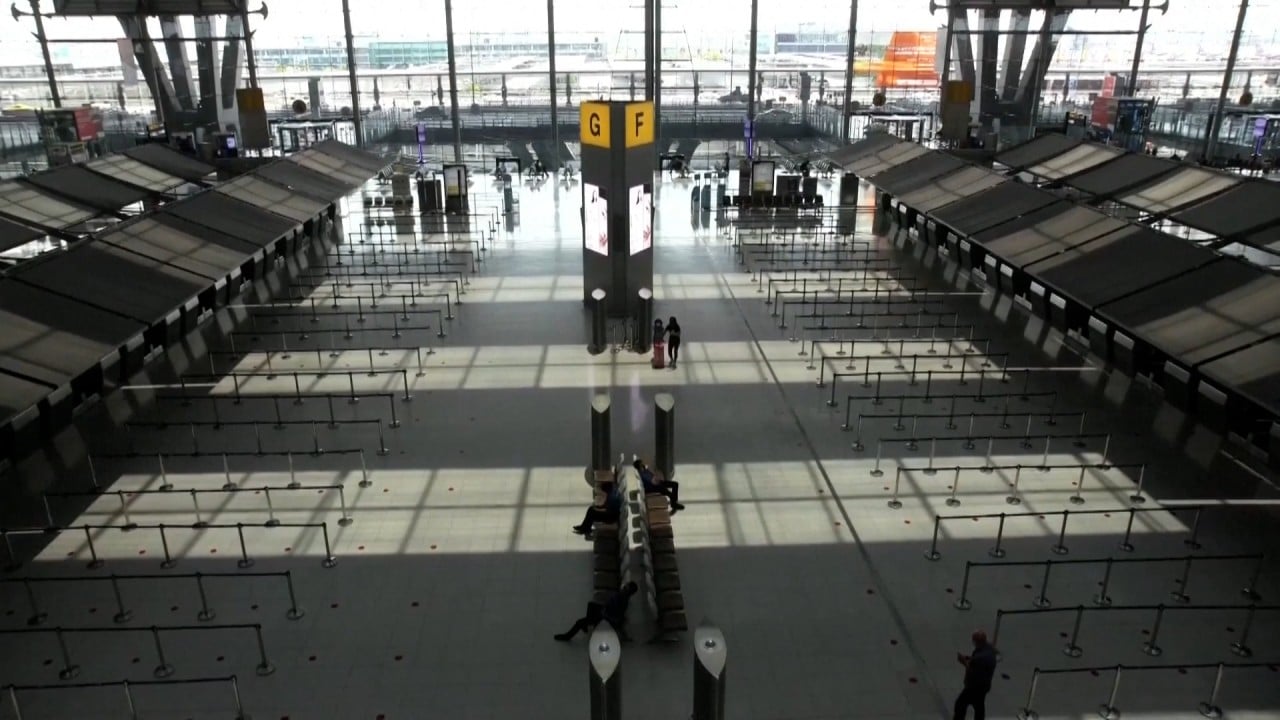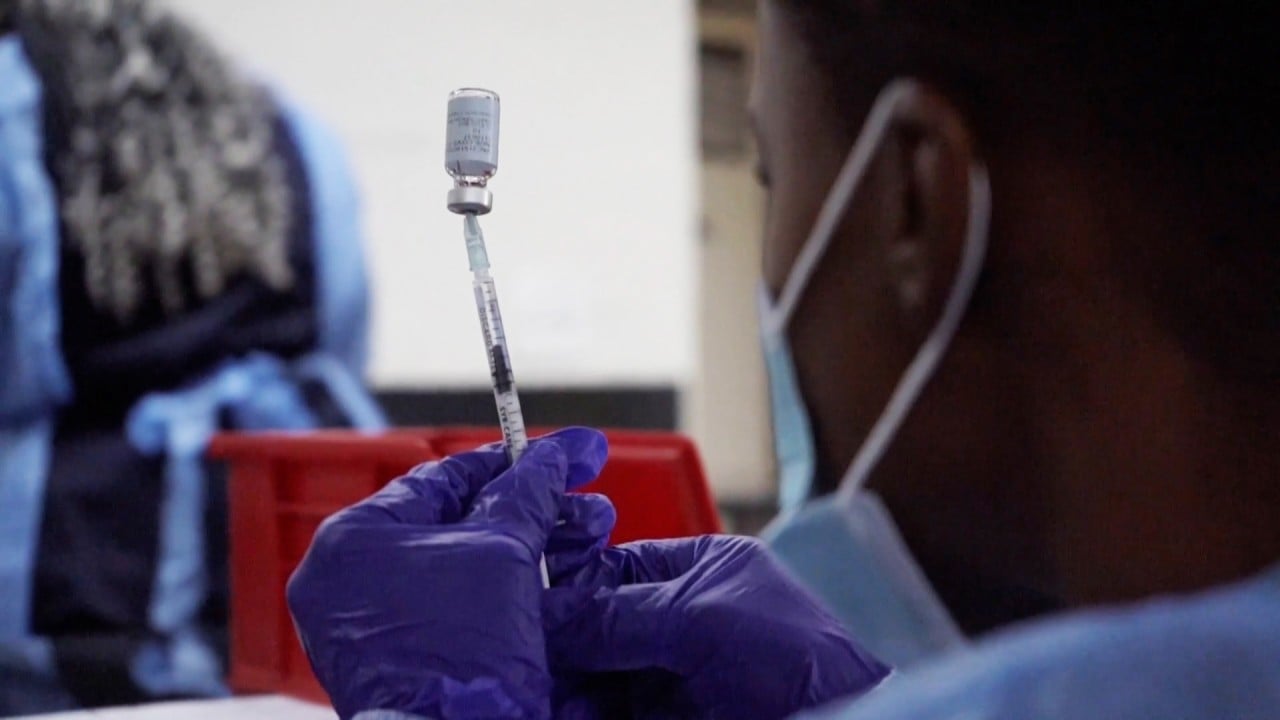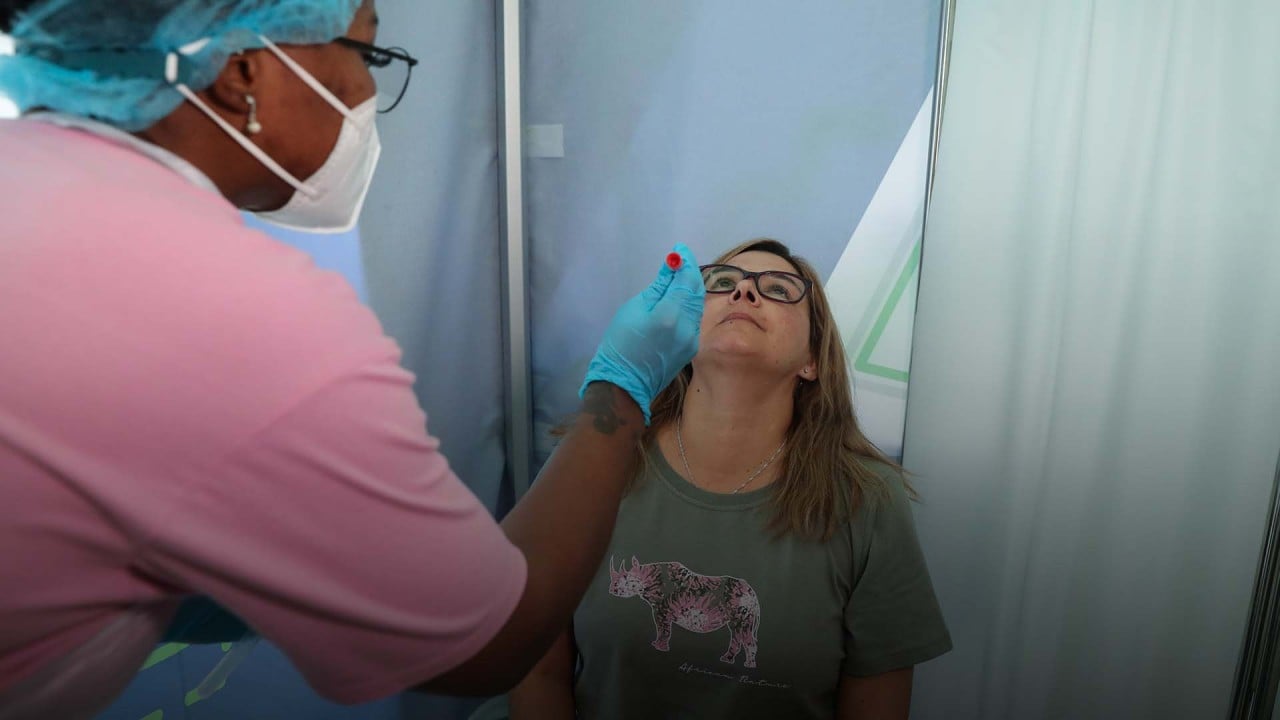
Explainer | Omicron travel restrictions: from Singapore to Japan, Australia to India, here’s what Asian countries are doing to fight the new coronavirus variant
- Governments across the region are tightening entry requirements and quarantine rules for travellers in response to the potentially more transmissible variant
- This Week in Asia writers have the lowdown on the latest measures
Travellers have been left scrambling to salvage their Christmas holidays as governments across Asia tighten their entry and quarantine rules following the emergence of the Omicron coronavirus variant.
However, it is far from alone in tightening its measures and some Asian countries have either blocked or are considering blocking visitors from Hong Kong following the discovery of the Omicron variant in travellers undergoing hotel quarantine in the city.
Below, This Week in Asia writers have the latest on what Asian countries are doing to fight the new variant.
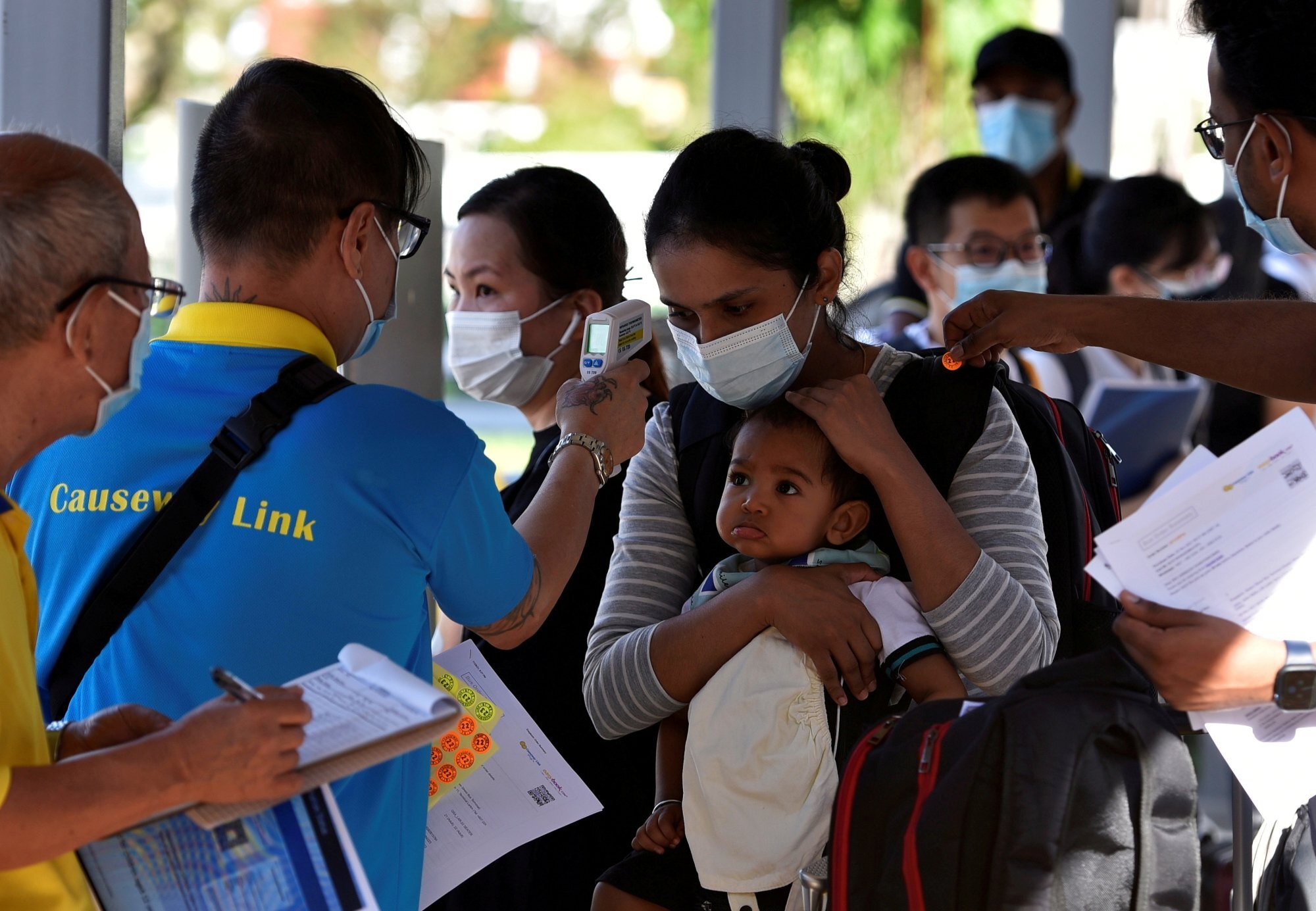
Singapore
“We don’t know what’s the next throw of the dice and which square we will land in,” Ong said in a press conference on Tuesday. “It may just be another variant that makes no great impact. You land on the boring square and we continue our current path to transit to living with Covid-19 as a resilient nation.”
Authorities are taking no chances, however. From Friday, all incoming air travellers including returning residents and those transiting through Changi Airport will be subject to a tightened testing regime. This includes a pre-departure test and an on-arrival polymerase chain reaction (PCR) test.
The republic, which has thus far launched 27 vaccinated travel lanes (VTLs) that allow for quarantine-free travel, will delay the start of similar plans with Qatar, the United Arab Emirates and Saudi Arabia – key transport nodes to the countries affected by the new variants.
Those who arrive in Singapore on VTL flights from Friday will be required to undergo additional antigen rapid tests in designated quick test centres in the country on the third and seventh days of their arrival.
Anyone infected with the Omicron variant will not be allowed to undergo home recovery and instead will be conveyed to the National Centre for Infectious Diseases for isolation until they recover from the infection. Similarly, close contacts of these cases will be required to quarantine in designated facilities instead of at their homes. Existing social gathering rules – which now permit people to dine in groups of five – will not be further eased for now, officials said.
Singapore has so far not detected any cases of the Omicron variant.
‘Unknown enemy’: Singapore tightens testing at border over Omicron concerns
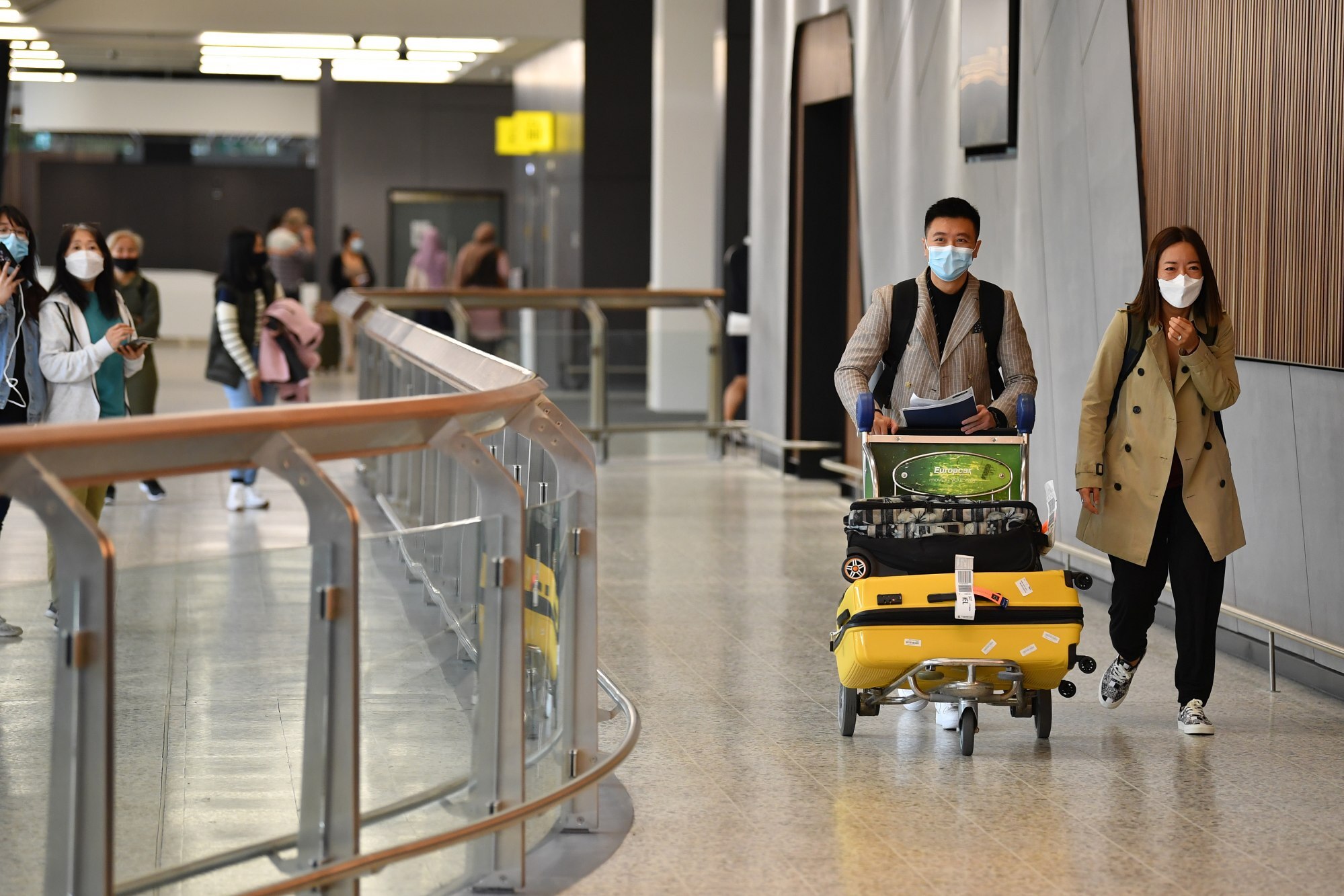
Malaysia
It will also delay plans to set up Vaccinated Travel Lanes with those countries, minister Khairy Jamaluddin told reporters. Khairy said passengers on direct or transit flights from South Africa, Botswana, Eswatini, Lesotho, Mozambique, Namibia, Zimbabwe and Malawi would not be allowed in.
Khairy said the list of countries on the banned entry list would be updated on a daily basis.
Kuala Lumpur, like most other governments, has already banned travel from seven southern African countries following the discovery of the variant in that region.
Residents will be allowed to return home from these countries but must serve a mandatory 14-day quarantine in designated government facilities.
On Tuesday Defence Minister Hishammuddin Hussein said the government would pause a plan to transition towards treating Covid-19 as endemic in light of the Omicron variant’s emergence.
Despite these concerns, the country is gearing up for elections in the state of Sarawak in Borneo. Nomination day for the state polls has been set for November 6, while polling day is on December 18.

Indonesia
Indonesian nationals who have travelled to any of the 11 countries on the temporary travel ban list will have to quarantine for 14 days upon arrival in Indonesia.
Indonesian and international travellers arriving from elsewhere will have to quarantine for one week, up from the previous three days.
Announcing the new regulations on Sunday, Indonesia’s coordinating minister for maritime affairs and investment, Luhut Pandjaitan, said that the government would monitor the situation and update the rules accordingly.
He also announced that Bali and Jakarta would reimpose community restrictions to Level 2, up from the previous Level 1, meaning that offices and restaurants can operate at a maximum 50 per cent capacity and supermarkets at a 75 per cent capacity.
Siti Nadia Tarmizi, the spokesperson of the Covid-19 Vaccination Programme at the Ministry of Health, said there had been no cases of the Omicron variant detected in Indonesia so far.
Myanmar
Last week, two Myanmar-China border crossings were reopened for trade after being shut for almost seven months. There was no immediate comment from junta officials on whether this arrangement would continue in light of the Omicron variant.
In an interview with This Week in Asia in November, the junta’s information minister Maung Maung Ohn said officials were hoping to reopen travel with China and Thailand by January, with broader easing of air travel restrictions expected by the first quarter of 2022. About 42.7 per cent of the country’s 53 million people have thus far been fully vaccinated, according to Our World in Data.

India
Every state has been told to trace people who arrived from abroad in the past month. Testing is being ramped up. So far, despite genome sequencing of hundreds of samples since November 26, no case of Omicron has been detected.
Administering the second vaccine dose to the more than 100 million Indians who are due for it but have not received it has become an urgent priority. Only 40 per cent of the population is fully vaccinated. Efforts are on to ensure extra beds, oxygen and medicines to prepare for another possible onslaught.
In view of the threat from Omicron, the state of Kerala has said people who do not come forward for a second dose will not receive free medical treatment if they catch the virus.
Meanwhile, Bloomberg reported that the western Indian state of Maharashtra has imposed a compulsory seven-day institutional quarantine for international passengers arriving from nations declared “at risk” by the government. International passengers will be allowed to take connecting flights only if they are tested negative at the airport. All flying to the southern city of Bengaluru from overseas also have to undergo isolation for seven days.
Last week, India had announced it was resuming normal international commercial flights from December 15 but this is now being reviewed.
‘A chance to make peace’: the Chinese toughing out India’s Covid-19 storm
South Korea
“[The variant] could wreak havoc with efforts to prevent the spread of Covid-19,” Moon warned.
Seoul has launched a pan-government task force including representatives from the foreign ministry, health ministry, immigration authorities and the Korea Disease Control and Prevention Agency (KDCA), to cope with the new variant and implement preventive steps such as immigration controls and the development of test kits.
South Korea’s daily rate of coronavirus infections on Wednesday exceeded 5,000 for the first time since the start of the pandemic, with a Delta-driven surge also pushing hospitalisations and deaths to record highs.
It reported an all-time high of 5,123 new coronavirus cases that day, as the country’s fatalities reached a total of 3,658 after reaching a level of between 30 and 50 deaths a day in recent weeks.
The recent surge came after the government eased social distancing rules at the start of November as the first step to restoring some pre-pandemic normalcy.

Japan
The 10 countries are Angola, Botswana, Eswatini, Lesotho, Malawi, Mozambique, Namibia, South Africa, Zambia and Zimbabwe.
The new rule is in addition to the ban announced earlier in the week on any foreign national without permanent residency entering the country. That regulation is due to come into effect on Thursday and the government has said no date has been set for when it might be eased.
More stringent quarantine measures are also being reimposed, with Japanese nationals and foreigners with permanent residency status now required to spend up to 10 days in a government-designated isolation facility. The quarantine period was only relaxed to three days of home isolation earlier this month.
Japan has also asked airlines to stop taking new incoming flight bookings over concerns about the Omicron virus variant, the transport ministry said on Wednesday. “We have asked airlines to halt accepting all new incoming flight reservations for one month starting December 1,” a transport ministry official said, adding that existing bookings would not be affected.
Despite the administration of Prime Minister Fumio Kishida acting swiftly to counter the threat – something that his predecessor, Yoshihide Suga, was condemned for failing to do – the first case of the Omicron variant has been detected in Japan.
According to press reports, a diplomat who was travelling to Japan from Namibia tested positive for the virus after arriving at Tokyo’s Narita Airport with his family on Sunday. The man, who has not been named but is understood to be in his 30s and had been fully vaccinated, has been isolated and is being treated at a hospital, while 70 passengers and crew who were on the same flight are self-isolating. None have tested positive for the virus.
The Hong Kong government has reacted rapidly to the first case of the Omicron variant in Japan, tightening entry and quarantine requirements for anyone arriving from Japan.
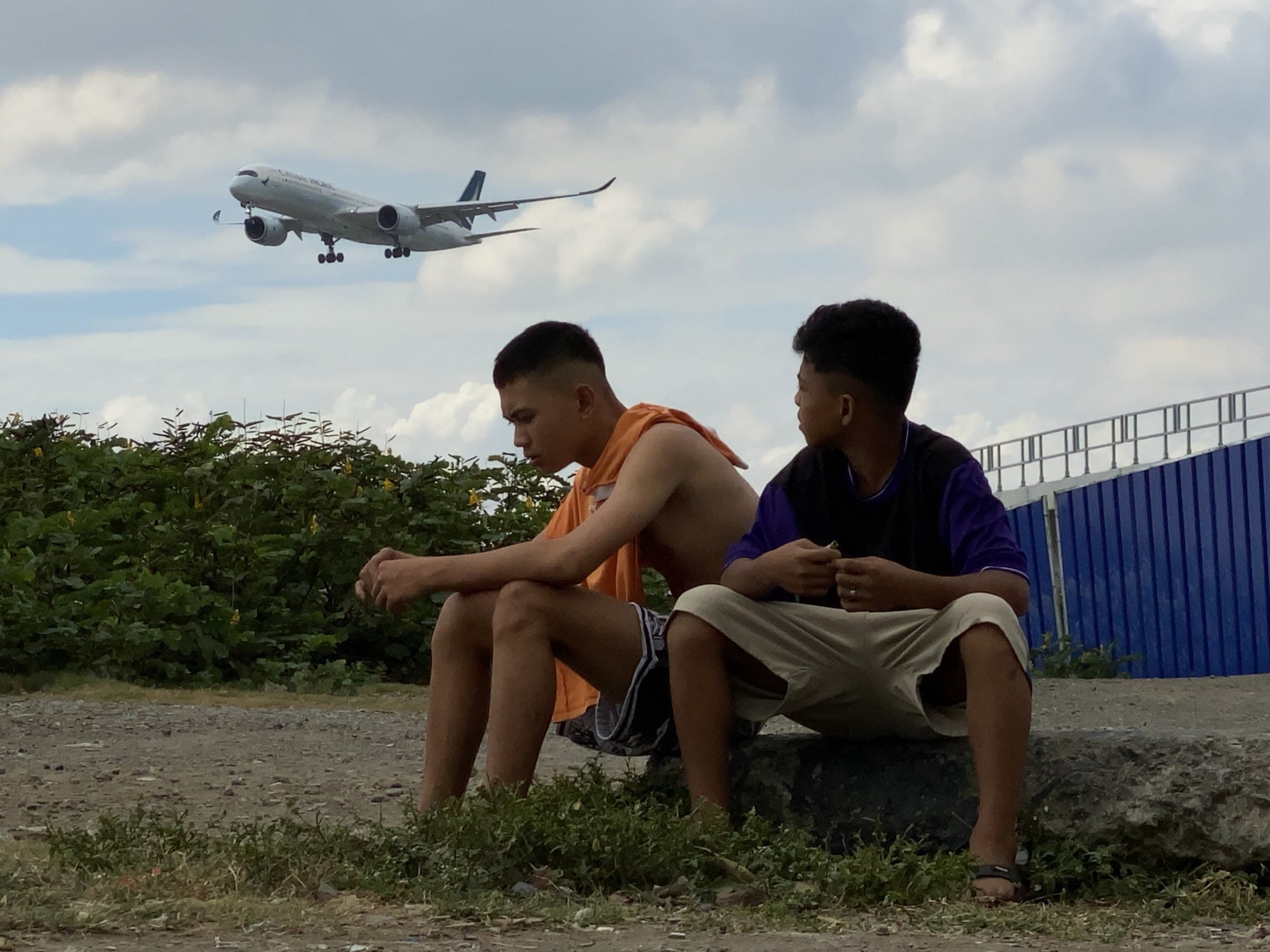
Philippines
Inbound travellers from Hong Kong were initially part of the ban due to a case detected at a quarantine hotel in the city, but the Department of Health stepped in and said there was no need yet and any ban would depend on the recommendation of an expert panel that is to meet on Thursday.
Hong Kong remains on the “yellow list”, which means fully vaccinated travellers must quarantine for three days at a designated facility and take two tests, one within 72 hours of arrival and one on the third day of quarantine. If both are negative, the traveller then self-isolates at home for 14 days. Unvaccinated travellers from Hong Kong can still enter, but spend seven days of quarantine at a designated facility, then take a swab test before isolating at home until the 14th day. If an unvaccinated parent arrives with a vaccinated child, both must undergo the more stringent quarantine measure.
The number of daily new infections dropped to 425 cases nationwide on Tuesday, the lowest daily tally this year. Experts expect it to drop even more by Christmas provided the Omicron variant can be kept out. Active infections are currently at 15,800 nationwide.
Secretary of Health Francisco Duque, however, said on Monday that the entry of Omicron was a question of “when”, not “if”. Traditionally, millions of overseas Filipino workers fly home in December to celebrate Christmas with their families.
Some 34.2 million of an estimated 110 million Filipinos have been fully vaccinated, while another 43.29 million await their second dose, according to Statista. The target is to vaccinate 54 million by the end of the year, Duque said.
The “red list” countries – from which all travellers are banned whatever their vaccination status – are: Austria, the Czech Republic, Hungary, the Netherlands, Switzerland, Belgium, Italy, South Africa, Botswana, Namibia, Zimbabwe, Lesotho, Eswatini and Mozambique.

Thailand
Under the Test & Go scheme in place since Thailand’s reopening on November 1, the country has allowed travellers from 63 nations and territories to enter and take the RT-PCR test upon arrival.
That test takes hours to provide results, and travellers are presently required to spend at least one night at a hotel while they wait.
This had prompted a plan to replace the RT-PCR tests with antigen tests from mid-December though this change may now be reviewed.
On November 28, the Ministry of Public Health imposed restrictions on arrivals from Botswana, Eswatini, Lesotho, Malawi, Mozambique, Namibia, South Africa, and Zimbabwe. From December 1, arrivals from these countries will no longer be permitted to enter the country. Also from December 1, arrivals from other African countries will no longer be eligible to enter Thailand under the Sandbox programme, which allows quarantine-free entry to some provinces including Phuket for some travellers. However, arrivals from those other African countries will still be allowed to arrive in Thailand and quarantine for 14 days, during which time they will be required to take three RT-PCR tests.
Vietnam
Australia
Vaccinated Australians reaching Sydney and Melbourne from all other countries must now quarantine for 72 hours. Other states have not opened their international borders yet.
New Zealand
There were no cases of the Omicron variant in New Zealand at this stage but the developing global situation showed why a cautious approach was needed at the borders, she said.
New Zealand has some of the toughest border controls in the world and plans to keep borders closed to most international travellers for a further five months. It also introduced fresh border measures for travellers from nine southern African nations on the weekend, announcing that only citizens of New Zealand from these countries could travel to New Zealand and even these would have to stay in state quarantine for 14 days.
New Zealand moves into a new “traffic light” system from Friday that rates regions as red, orange or green depending on their level of exposure to Covid-19 and vaccination rates. Auckland, the epicentre of the country’s Delta outbreak, will start at red, making face masks mandatory and putting limits on gatherings at public places.
Additional reporting by Reuters, Bloomberg, Agence France-Presse






